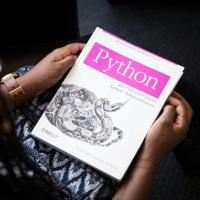
Python Free Courses, Projects & Books
Perfect channel to learn Python Programming 🇮🇳 Download Free Books & Courses to master Python Programming - ✅ Free Courses - ✅ Projects - ✅ Pdfs - ✅ Bootcamps - ✅ Notes Admin: @Coderfun Buy ads: https://telega.io/c/pythondevelopersindia
Ko'proq ko'rsatish- Kanalning o'sishi
- Post qamrovi
- ER - jalb qilish nisbati
Ma'lumot yuklanmoqda...
Ma'lumot yuklanmoqda...
Complete Python Roadmap 🐍👇 1. Introduction to Python - Definition - Purpose - Python Installation - Interpreter vs Compiler 2. Basic Python…
Complete Python Topics for Data Analysts 😄👇 Python for Data Analysis:
https://t.me/pythonanalyst1. Introduction to Python: - Variables, data types, and…
Complete Python topics and subtopics for Data Analytics: 𝗕𝗮𝘀𝗶𝗰𝘀 𝗼𝗳 𝗣𝘆𝘁𝗵𝗼𝗻: - Python Syntax - Data Types - Variables - Operators - Control…
Joriy rejangiz faqat 5 ta kanal uchun analitika imkoniyatini beradi. Ko'proq olish uchun, iltimos, boshqa reja tanlang.

 Network:
Network: